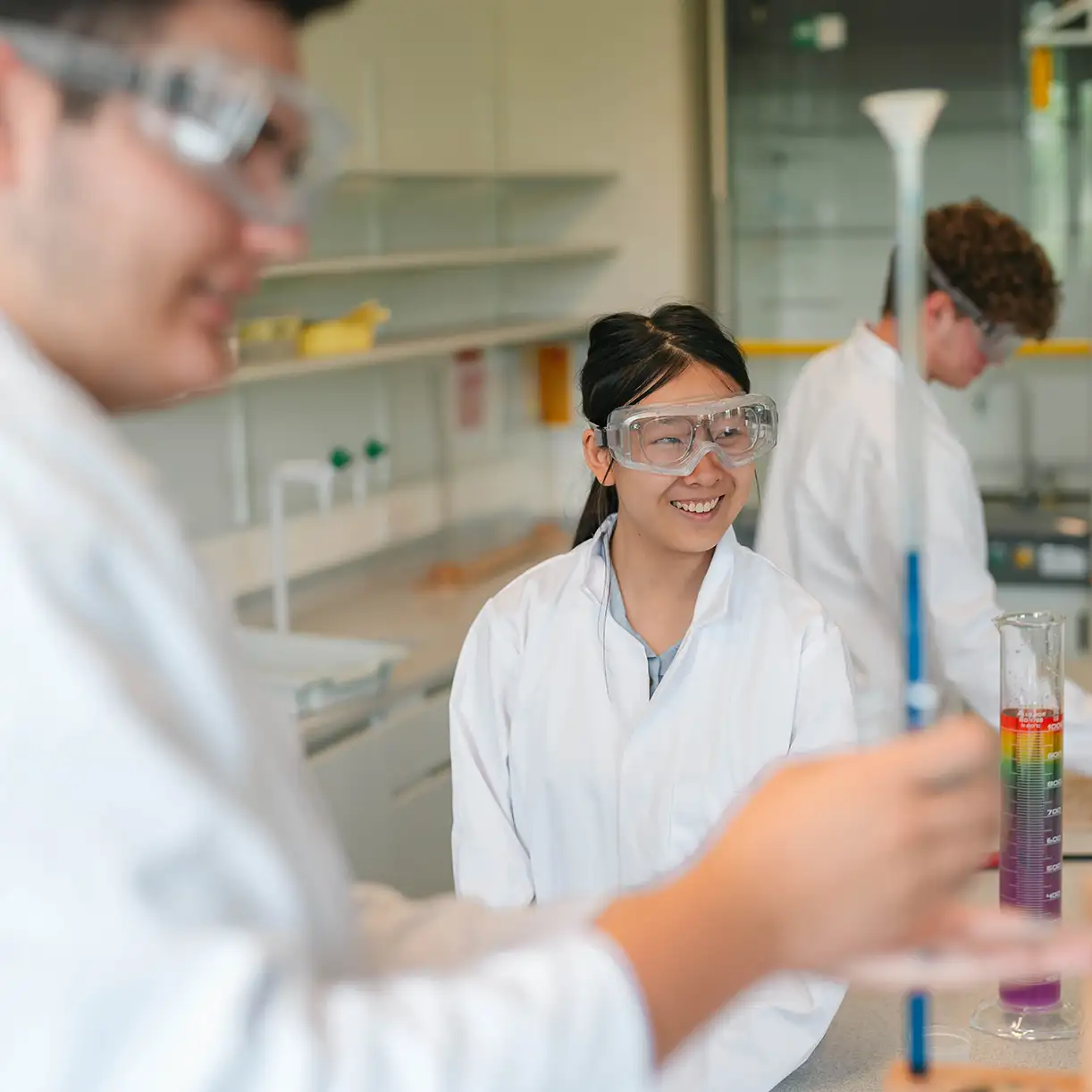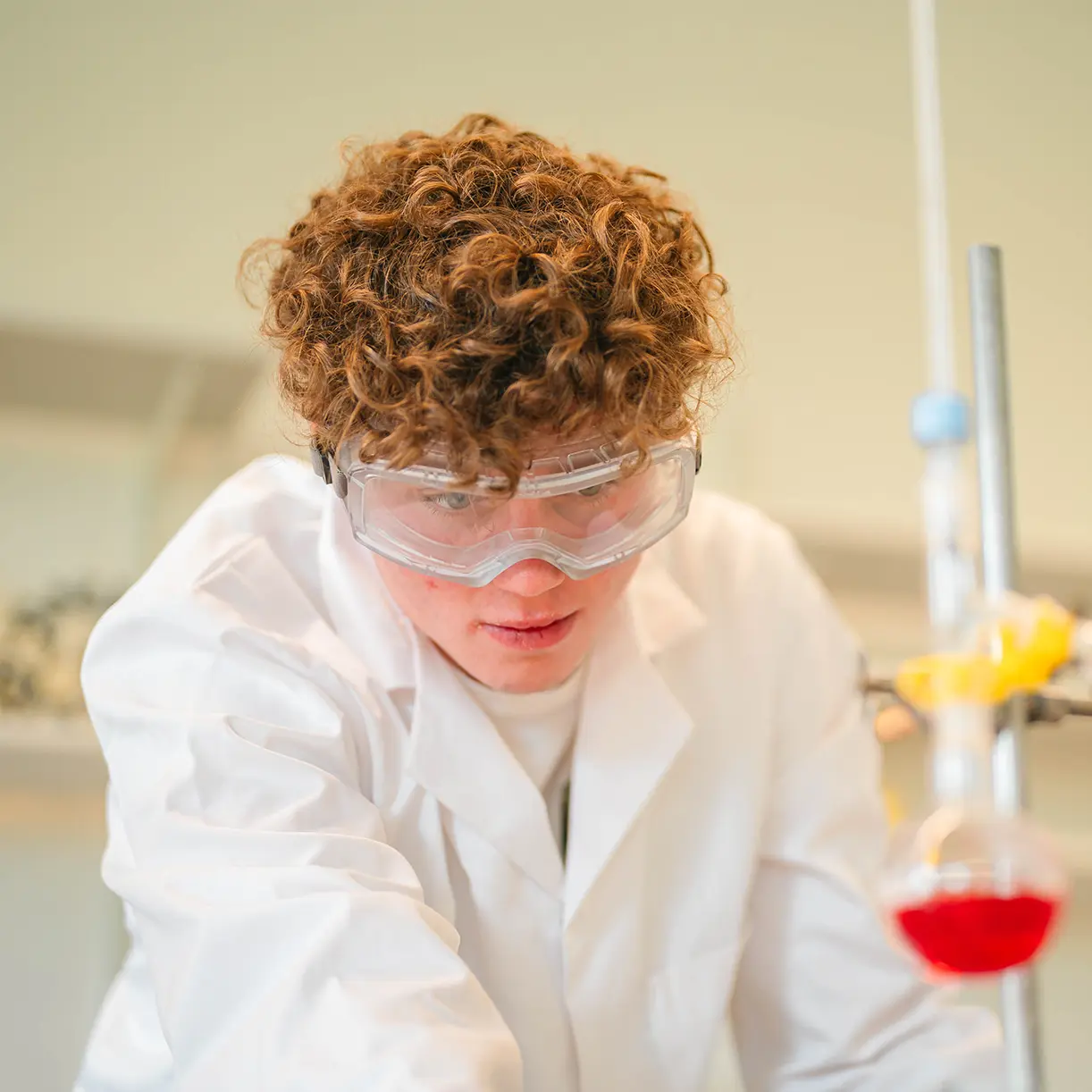Our comprehensive chemistry curriculum goes into the fundamental principles and concepts of chemistry.
We combine hands-on laboratory experiments, theoretical knowledge, and problem-solving skills to equip pupils with a strong foundation in chemistry.
Pupils study a wide range of topics from organic chemistry, which focuses on the properties and synthesis of organic molecules, to physical chemistry which looks at the processes that drive chemical reactions.



